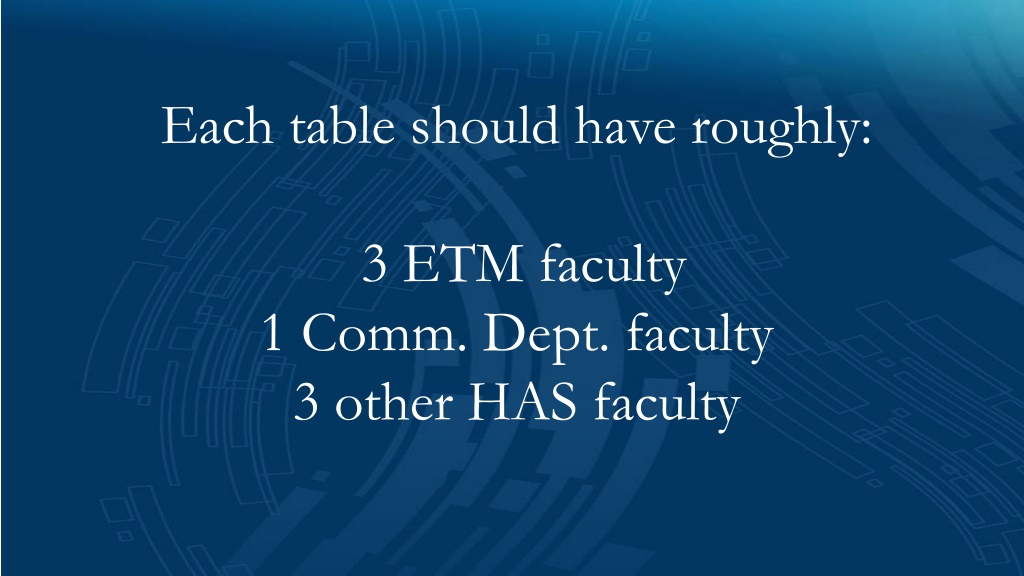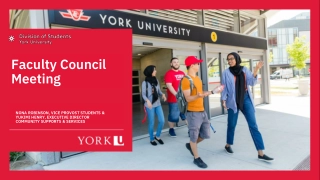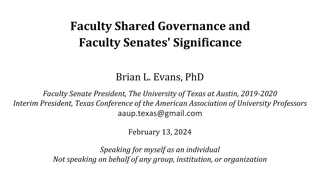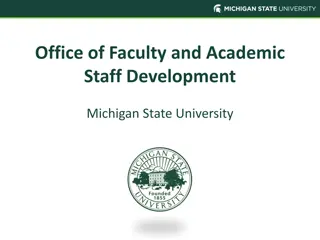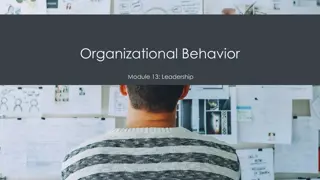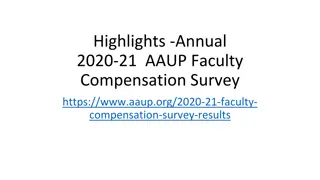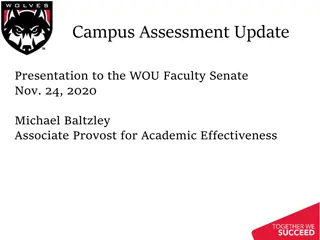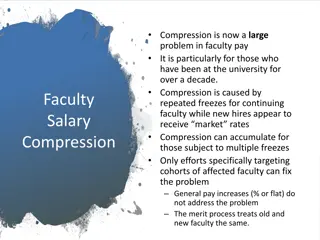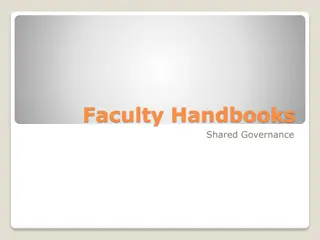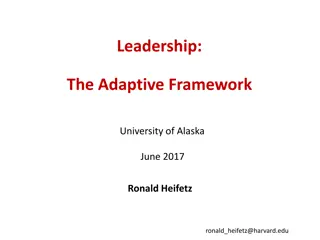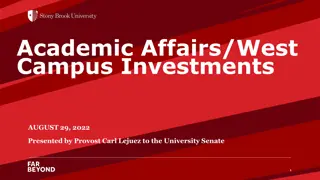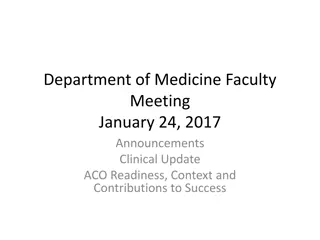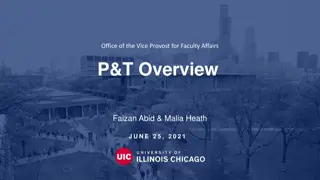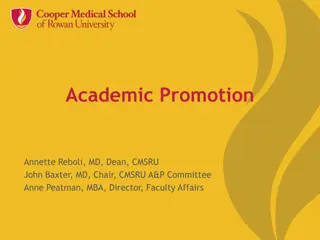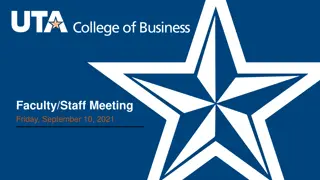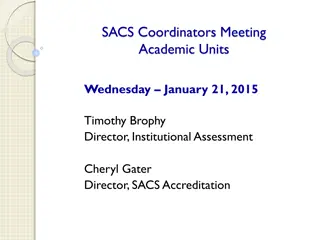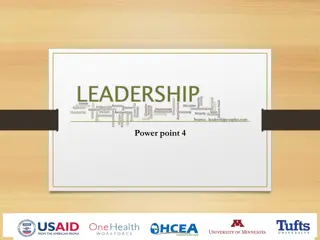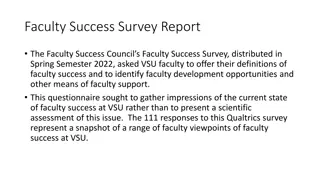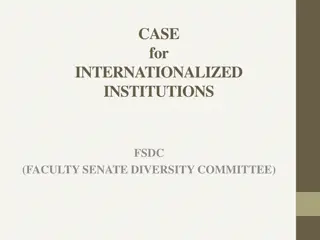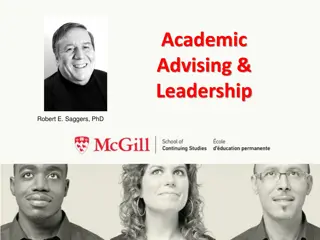Understanding Academic Assessment and Faculty Leadership
Delve into the world of academic assessment, exploring its role in evaluating student learning outcomes and driving continuous improvement. Learn about the pivotal role of faculty leadership in guiding academic programs towards serving students better. Discover how data-driven decisions and faculty empowerment play a crucial role in enhancing educational quality.
- Academic assessment
- Faculty leadership
- Student learning outcomes
- Continuous improvement
- Data-driven decisions
Download Presentation

Please find below an Image/Link to download the presentation.
The content on the website is provided AS IS for your information and personal use only. It may not be sold, licensed, or shared on other websites without obtaining consent from the author. Download presentation by click this link. If you encounter any issues during the download, it is possible that the publisher has removed the file from their server.
E N D
Presentation Transcript
Each table should have roughly: 3 ETM faculty 1 Comm. Dept. faculty 3 other HAS faculty
Digging Into Assessment Data September 18, 2017 Seth Anthony, Interim Director, Office of Academic Excellence Associate Professor, Natural Sciences Janette Isaacson, Chair, Executive Committee of the Assessment Commission Associate Professor, Medical Imaging Technology
Academic Assessment Asks How well did our students learn the things we set out for them to learn? and then asks us to respond to that data. As instructors, we naturally do this in our courses. Academic assessment looks at the entire curriculum, because a curriculum is more than the sum of its parts.
Why Do We Do Academic Assessment? 1) The carrot continuous improvement We look at data to see how we can do better for our students. 2) The stick accreditation (institutional and programmatic) Accreditors want to see evidence of genuine continuous improvement processes. Assessment activity that doesn t support these goals needs to be revisited, revised, or redesigned. Faculty and staff time is too valuable to do otherwise.
Faculty Leadership Genuine continuous improvement of academic programs must center on faculty the ones designing and implementing changes to better serve students. Executive Committee of the Assessment Commission, 2016-2017: Veronica Koehn (outgoing chair) Don McDonnell Janette Isaacson (incoming chair) Kristen Konkel Hallie Neupert Sandra Bailey Troy Scevers
Office of Academic Excellence Seth Anthony, Interim Director Nellie Stewart, Executive Assistant OAE works with (1) academic assessment, (2) general education, and (3) faculty development. OAE s job with assessment is to lower barriers and empower faculty to reflect on and respond to data; to support genuine continuous improvement.
How Do We Do Academic Assessment? We must define our goals in order to measure our progress. Each program has PSLOs: Program Student Learning Outcomes. Across all bachelor s degrees, we have ESLOs: Essential Student Learning Outcomes.
Oregon Techs Essential Student Learning Outcomes (ESLOs) Communication Teamwork Inquiry & Analysis Quantitative Literacy Ethical Reasoning Diverse Perspectives
Ethical Reasoning Design Assessment Inquiry & Analysis Reflect on Progress Collect Data Communication Analyze Data and Plan Improvement Evaluate Results Engage the University Diverse Perspectives
Communication ESLO Direct Assessments, 2016-2017 Faculty evaluations of students written work or oral presentation from three points along the curriculum: WRI122 and SPE111 (first year) Foundation: WRI227 (sophomore-junior year) Essential Practice: Program-Integrated Practice: Disciplinary Courses (junior-senior year) Typically scored by the instructor using the Communication ESLO rubric.
Communication ESLO Indirect Assessments, 2016-2017 Student Exit Survey responses (n=551; 68% of graduates) Graduating seniors rated: - their ability in each ESLO, - how much Oregon Tech contributed to their growth in each ESLO.
Reflect together! 12 minutes: Reflect on the data. 12 minutes: Reflect on how we should respond to it. 6 minutes: Reflect on the assessment process. 6 minutes: 12 minutes: 12 minutes:
Give us your reflections! We ll share these reflections with: Assessment Executive Committee Commission on College Teaching General Education Advisory Council Communication ESLO Committee (By start of winter term, OAE will report back to faculty big trends in your reflections and these groups initial reactions.)
Everyone (families, too) is welcome at the Family & Staff Giving Campaign BBQ Outside on the South Courtyard (between CU and Snell) Starting at 5 p.m. (right now!)
